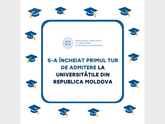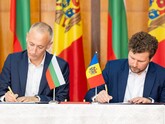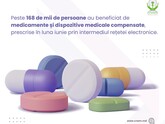
The overall effect of medical tourism on the Moldovan economy in 2025 is estimated at $200 million per year, - Veaceslav Ionita
This opinion was expressed by an economic expert, analyzing the data of this industry over the past 15 years. The expert believes that Moldova is turning medical tourism from a narrow niche into one of the key drivers of economic growth, and this industry can become strategic. Thus, if in 2010 the income from providing medical services to foreign patients amounted to only $10.5 million, then in 2024 it exceeded $64 million, and for the first quarter of 2025 - $16.5 million. The forecast for the end of the current year is over $75 million. These data take into account only medical services themselves, and taking into account the costs of accommodation, transportation, food, as well as the services of translators, guides, agencies and the contribution of the diaspora, which often returns to Moldova for treatment, the total economic effect of medical tourism for the country will amount to at least $200 million this year. The main areas in demand among foreign patients are dentistry, plastic surgery, ophthalmology, IVF procedures, rehabilitation and, increasingly, complex surgeries, the cost of which is 4-6 times lower than in the patients' countries of origin. Most medical tourists come to Moldova from Romania, Ukraine, Russia, Germany, Poland, Israel and the United States. According to Veaceslav Ionita, today the potential of this industry is used by 5%, although even the existing infrastructure for providing services in the field of medical tourism would provide the economy with an additional $ 1.2 billion. He draws attention to the fact that the strategic importance of the industry is confirmed by international recognition, for example, Moldova currently chairs the Global Medical Tourism Council. In 2025, Chisinau will host the Global Medical Tourism Forum, participation in which has been confirmed by representatives of more than 50 countries. Veaceslav Ionita believes that the development of this industry requires a comprehensive approach: investments are needed in infrastructure and personnel training, it is important to ensure the digitalization of services and make them more accessible, and it is also necessary to develop a policy dedicated to this industry.// 30.07.2025 — InfoMarket







